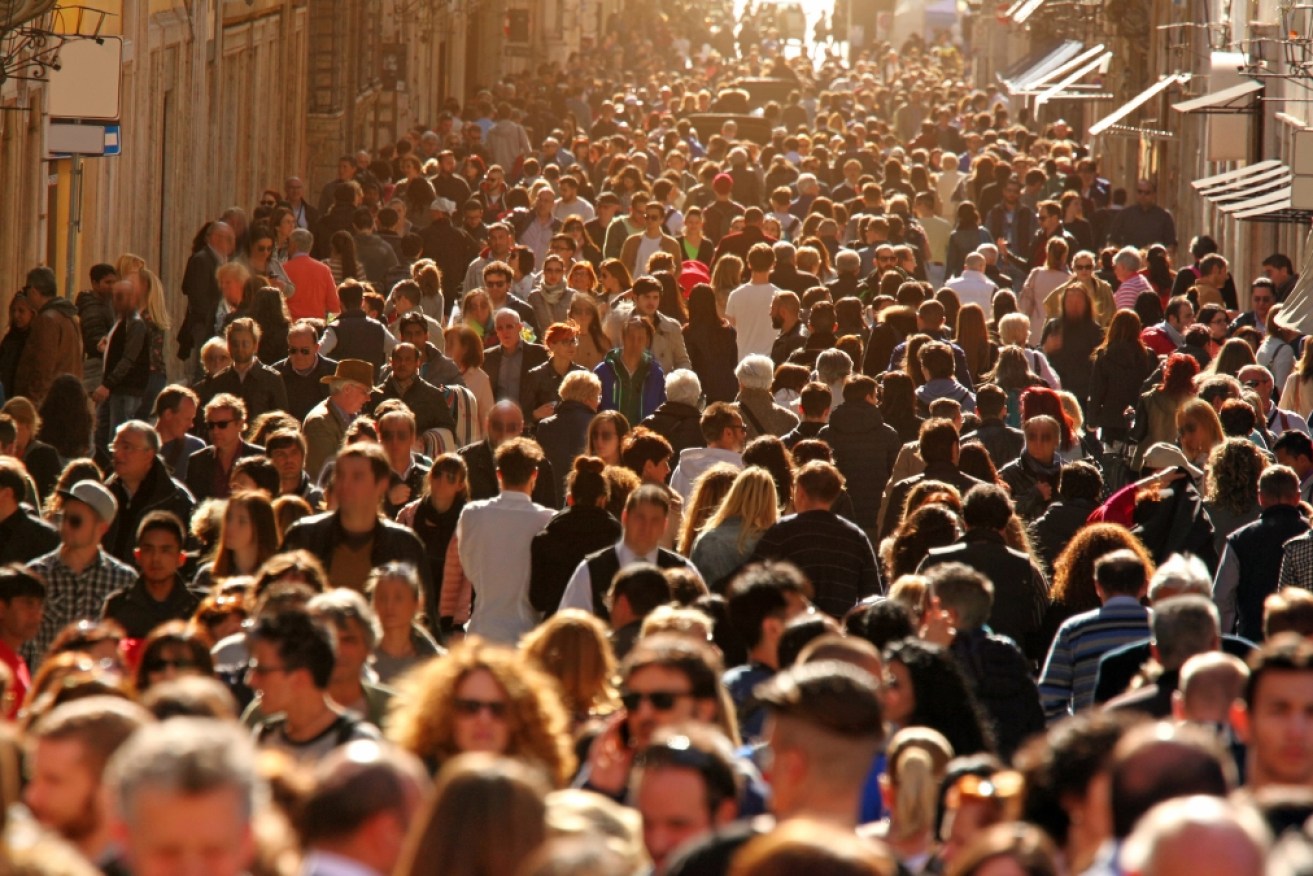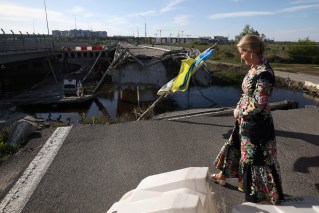‘Selfish’ tourists abound: Here’s how to be a good one


Crowds of tourists become even more unbearable when they act badly. Photo: Getty
Whether it be stripping down at sacred sites or defacing millennia-old historical structures, there has been a steady stream of reports of tourists acting up while overseas.
A viral video last month showed Ivan Dimitrov, a tourist from Britain, carving a love note for his partner into the wall of Rome’s Colosseum, sparking outrage.
It appears that even then, some tourists clearly didn’t get the memo, as just last week an unrepentant 17-year-old was filmed scratching her initials into the amphitheatre that has stood for almost 2000 years.
Australia’s neighbour Indonesia has also had a bad run with tourists this year, with numerous foreign nationals being arrested and/or deported for acts including taking nude pictures at sacred sites, and fighting with local authorities.
Freya Higgins-Desbiolles, University of South Australia senior lecturer in tourism management, said the recent spate of disrespectful tourist antics could be a symptom of ‘revenge travel‘ in the aftermath of pandemic restrictions.
“People feel this desperation to get out and enjoy, and perhaps aren’t being as sensitive and responsible as they could be,” she said.
After years of border closures and lockdowns, people don’t want to be told what to do, and are using self-justification through thoughts like, ‘I have earned a licence to sin’, research conducted by PhD candidate Wanting Sun, associate professor Monica Chien, and associate professor Ravi Pappu from the University of Queensland Business School, shows.
The research team told TND this mentality increases the possibility of violations of generally accepted norms of conduct in travelling situations.
“Inevitably, this mentality can [lead] to more tourism-induced disruptions, as tourists just want to relax, enjoy themselves and wish to be free from their everyday routines, responsibilities and prior restrictions,” they said.
General culture is more selfish
Dr Higgins-Desbiolles said people have also become more self-absorbed over the years, with things like the quest for the perfect selfie to post on social media leading to “boorish” behaviour at popular tourist destinations.
This selfish behaviour has already prompted jurisdictions like Portofino, Italy, to ban people from ‘lingering’ to take selfies, due to resultant traffic jams and blocked streets.
“I think culturally now, we’re very individualised around the world, with the way that the markets work and the way that consumerism works,” Dr Higgins-Desbiolles said.
“What we want to do is what we should do … so the idea of moral codes and behaviours seems like it’s impinging upon freedom.
“I think that we need to combat that cultural change that we’ve had.”
Lack of education
A decrease in the promotion of responsible and ethical tourist behaviour could also bear some responsibility for recent incidents.
For example, Dr Higgins-Desbiolles said 1990s-era Australian flights to Bali would play passengers a short clip that would shine light on acting responsibly when travelling in Bali.
Although this push to educate tourists has since fallen out of fashion, some airlines are making moves to bring it back.
Last year, Air New Zealand debuted a new safety video that emphasised the Tiaki Promise, a commitment that encourages both New Zealanders and international visitors to care for the country’s place, culture and people.
This year, Bali began issuing a list of ‘dos’ and ‘don’ts’ to foreign visitors.
Dr Higgins-Desbiolles said information on how to behave while travelling should also be imparted by travel agencies, and should even be taught in schools.
How to be a good tourist
If you’re planning to travel and want to avoid becoming another tourist despised for bad behaviour, tips from experts include:
- Educate yourself: If you’re going to be spending time in a place you’re not very knowledgeable about, try and learn as much as you can about the local culture, social norms and regulations. This can also be applied in Australia, in regards to Indigenous sacred sites
- Learn the basics of the local language: Words like ‘please’, ‘thank you’, and ‘sorry’ can go a long way to avoid – or make up for – any accidental offence you may cause on your travels. It’s probably also useful to learn the word ‘stop’ in case it’s shouted at you, for the same reason
- Ask before taking photos: This is probably a no-brainer when at home, but if you want to take photos of strangers overseas, ask their permission first. Dr Higgins-Desbiolles said you also shouldn’t be surprised if people in less-wealthy areas ask for money in exchange
- Respect local people and culture: As the saying goes, treat others they way you want to be treated. Just because local values may be different to yours, doesn’t mean they’re not worth your respect. Be open to learning from local communities, and try to build trust and establish meaningful relationships with local people
- Support the local economy: While it might seem easier to head towards the brands and shops you’re familiar with, try and make an effort to contribute directly to the local economy. Some ways you can do this include buying from local vendors, staying in locally-owned accommodation, and using local tour operators.
“When we think about travelling out from Australia after the lockdowns and all the difficulties that we’ve had, we do kind of have a selfish mindset,” Dr Higgins-Desbiolles said.
“But we can definitely take some time to think about what a privilege it is to travel to other people’s countries … as these places are called ‘tourism destinations’, we sometimes forget that it’s the local community’s home.
“So that respect and appreciation for the honour that it is to be welcomed into other people’s homes is a really important insight that can help shape your visit for the good of the place.”








